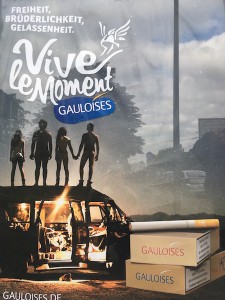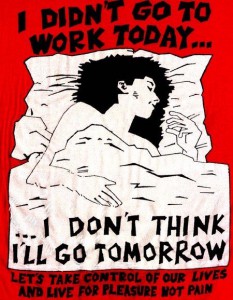Competitive notions in interpreting the concepts of situationism are creating a dilemma. This dilemma signifies friction between the concept and its use in daily life.
Firstly I should say that situationism and the Situationist International had been created in a different world/time than the one I live in. The concept of freedom and play as stated in many of their ideas, resemble an assembly of philosophical and empiric references that are mine, but experienced in a different context. This leads to a reinterpretation of freedom and play connected to the world I live in now.
INDIVIDUAL VERSUS GROUP
Situationist ideas about psychogeography (dérive) and unitary urbanism clarify the concept of living in situations, freedom and play vividly. People wander through different urban areas. Having their individual feelings lead them while being directly influenced by their surroundings. An idea of exploring and living in a landscape existing of unplanned surprises.
So far, this concept might sound clear, but a paradox can be found in many of their statements.
On the one hand a person should be strongly attached to his/her own feelings/emotions/senses (individualism), but on the other hand a capitalist/materialist individualism is condemned. This states an interesting way of thinking. Complex by all means.
The word of subject in the sentence above is ‘individualism’, but in my vision on the main situationist theory (a radical aversion for ideas and practices of the powers that were), are ‘individualism’ and ‘collectivism’ interchangeable. The notion of the individual and the group as being a unity and at the same time fragmenting this collectiveness, is such a tough contradiction. This makes situationist theories approachable in many ways, but inapproachable in even more.
The radical, anti-capitalist ideas of the situationists can be very effective in extreme, collective confrontation (i.e. revolts, revolutions, marches, strikes). Meanwhile, the individual in daily life, loses strength.
An individual that constructs situations, will be living in a different situation than another individual, although their situations could overlay and complicates such an (already) unclear starting point. A situation defined for yourself, might complicate the practice of freedom and play in a cohesive, social setting.
Freedom and play should be incorporated in situations and life in general, but these terms are uncertain in ongoing effect and consequence.
EXTERNAL VERSUS INTRINSIC
The situationist notion of the spectacle (materialist/capitalist vision on life as a narrow-minded, superficial one) still divides and unites people in their daily patterns nowadays. Although the spectacle reshapes itself continuously towards more flexible definitions.
Primary, intrinsic and united similarities are what makes us homo sapiens. The by the situationists admired concept of the homo ludens unites us too. This adventurous person at play is inside all of us. Still few people are able to fully express this as described in a situationist’s observation.
External influences, as the spectacle, restrict us human beings to be limitless in freedom and play. But also, in my point of view, originates an important part from within people themselves. External information (cultural, traditional) is necessary to reinterpret in an individual context. Therefore freedom is needed. Next to these external factors, a variety of embedded instincts and needs (biological, genetic) are prematurely existing. To approach these in a constantly free and playful way is beautifully stated, but in my conception naive, since we are being born in an already populated world where centuries of ever transforming, created structures aren’t all based on (solely) money and power.
UTOPIA VERSUS REALITY
These situationist ideas, created and admired by artists and other people with interest and knowledge in arts, literature, philosophy and/or politics, is not made for, nor to be understood by many others. Capitalists nor communists (and many more who fill this gap).
A situationist world is a utopia. The importance of the unstructured, emotional drifts, guiding every person individually, is un-realizable.
Influence through morals, religions and politics have always been a limitation for protesters. But structure can be found in all ideas about life. Structure requires limits. Also, a construction of situations.
Read more :

